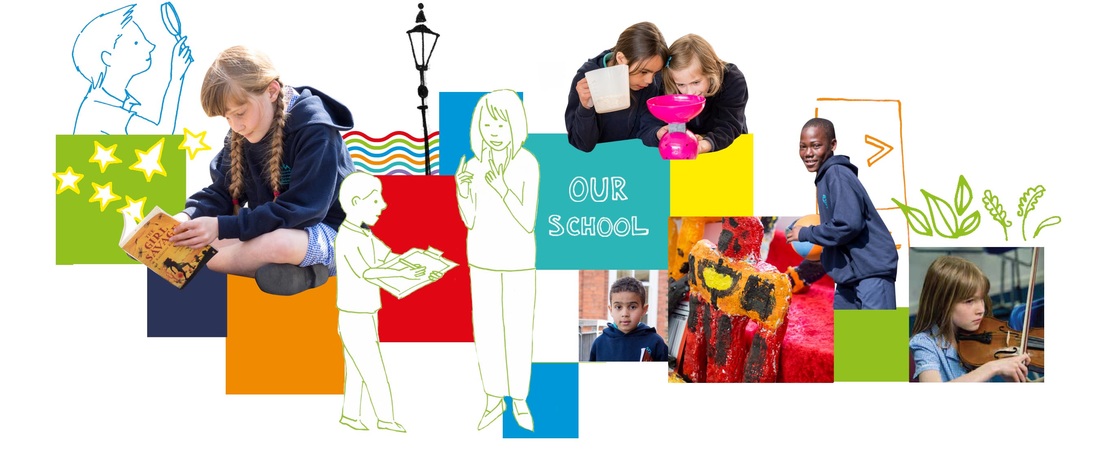Our Curriculum | English | Mathematics |
Science | PSHE | Music | PE | Art | RE | MFL | D&T | Geography | History | Computing | Extra-Curricular |
Science | PSHE | Music | PE | Art | RE | MFL | D&T | Geography | History | Computing | Extra-Curricular |
RELIGIOUS EDUCATION
Our teaching of RE develops knowledge and appreciation for the beliefs of others and enables pupils to explore their place in a diverse society.
Religious Education has the potential to make, “a major contribution to the education of children and young people. At its best, it is intellectually challenging and personally enriching. It helps young people develop beliefs and values, and promotes the virtues of respect and empathy, which are important in our diverse society. It fosters civilised debate and reasoned argument, and helps pupils to understand the place of religion and belief in the modern world”. (RE: realising the potential, Ofsted 2013).
Our Approach:
Pupils at Dulwich Hamlet learn RE within a progressive, knowledge and skills-based curriculum. Throughout their time at the Hamlet, children will learn about all the major religions represented in the UK with the following knowledge strands being used to guide that learning: understanding of God or Gods, signs symbols and places of worship, important stories and figures, ethics, daily life and practices, and festivals. Within their learning children will progress with the core skills of the subject: reasoning, comparison, explanation, learning and applying vocabulary, questioning and, most specific to the subject of RE, reflection and appreciation.
Through engaging with these knowledge strands with these skills children will leave Dulwich Hamlet having:
Curriculum Content
The RE curriculum reflects ‘the fact that the religious traditions in Great Britain are in the main Christian, while taking account of the teaching and practices of the other principal religions represented in Great Britain’. It also integrates belief systems that often fall outside of Religious Education such as Humanism and scientific perspective.
Withdrawal from RE
Parents and carers do have the right to remove their child from RE lessons; this wish must be communicated to the Head of School in writing. Hopefully any misunderstanding or concerns that might arise could be addressed without any child having to miss out on receiving the full curriculum.
Religious Education has the potential to make, “a major contribution to the education of children and young people. At its best, it is intellectually challenging and personally enriching. It helps young people develop beliefs and values, and promotes the virtues of respect and empathy, which are important in our diverse society. It fosters civilised debate and reasoned argument, and helps pupils to understand the place of religion and belief in the modern world”. (RE: realising the potential, Ofsted 2013).
Our Approach:
Pupils at Dulwich Hamlet learn RE within a progressive, knowledge and skills-based curriculum. Throughout their time at the Hamlet, children will learn about all the major religions represented in the UK with the following knowledge strands being used to guide that learning: understanding of God or Gods, signs symbols and places of worship, important stories and figures, ethics, daily life and practices, and festivals. Within their learning children will progress with the core skills of the subject: reasoning, comparison, explanation, learning and applying vocabulary, questioning and, most specific to the subject of RE, reflection and appreciation.
Through engaging with these knowledge strands with these skills children will leave Dulwich Hamlet having:
- A wide, deep and connected knowledge base about the major world religions and their similarities and differences
- Engaged with challenging questions about the meaning and purpose of life, beliefs, the self, issues of right and wrong, commitment and belonging both in the context of traditional belief systems and non-religious belief systems (for example Humanism and scientific perspective)
- Developed respect and appreciation for others, including people with different faiths and beliefs, and be able to help to challenge prejudice when they see it
- Considered their responsibilities to themselves and to others, and explored how they might contribute to their communities and to wider society encouraging empathy, generosity and compassion
- Had their own spiritual development nurtured
- Developed their ability to express their understanding of their own beliefs and the beliefs of others in progressively sophisticated ways
Curriculum Content
The RE curriculum reflects ‘the fact that the religious traditions in Great Britain are in the main Christian, while taking account of the teaching and practices of the other principal religions represented in Great Britain’. It also integrates belief systems that often fall outside of Religious Education such as Humanism and scientific perspective.
Withdrawal from RE
Parents and carers do have the right to remove their child from RE lessons; this wish must be communicated to the Head of School in writing. Hopefully any misunderstanding or concerns that might arise could be addressed without any child having to miss out on receiving the full curriculum.

